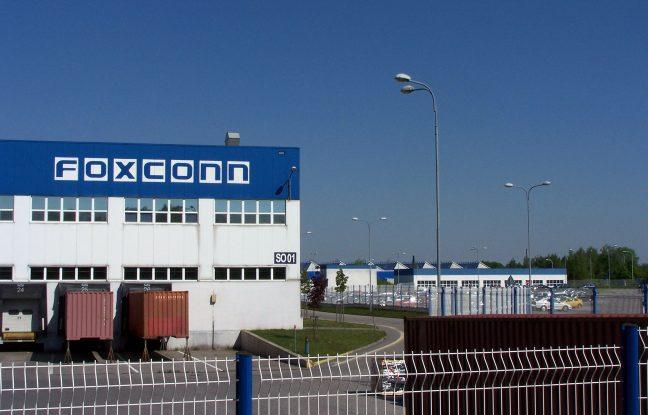Wisconsin news has been riddled in recent months with coverage of Gov. Scott Walker’s newly established deal with Foxconn, a Taiwan-based electronics company planning on building a new manufacturing plant in Racine, Wisconsin. Yet this deal has been met with strong opposition by Democrats, especially those running to unseat Walker. As Wisconsin’s 2018 gubernatorial election draws closer, the debate over the effectiveness and impact of the Foxconn deal on the economy will undoubtedly become a centerpiece of both parties’ campaigns. This could prove harmful to Democrats, whose staunch opposition to the deal seems to go against the best interests of their voters.
After the announcement of the Foxconn deal last July, Walker’s opponents have been both unified in their condemnation and disorganized in their overall message. One such candidate is Wisconsin Superintendent of Public Instruction Tony Evers, who currently holds a slim lead in polling for the Democratic primary approaching in August. Evers has been a vocal opponent of the Foxconn deal since his declaration to run for Wisconsin governor in 2017, yet his arguments against the deal have been weak at best.
One of Evers biggest criticisms of Governor Walker’s Foxconn deal has been that the money used for the deal could’ve been better appropriated elsewhere in Wisconsin’s economy, specifically investing it into our education system instead. While this sounds reasonable at first, the argument falls flat when considering the full scope of the Foxconn agreement. On the contrary, the deal has already proven to be an investment in Wisconsin’s education system, especially in universities such as the University of Wisconsin.
Just days after Foxconn and Walker announced their partnership, UW Chancellor Rebecca Blank described potential research partnerships already being developed with Foxconn. Yet, UW isn’t the only Wisconsin university benefitting from the deal. Many other Wisconsin universities, including Marquette University, have also expressed that they expect Foxconn settling in Wisconsin to be an excellent opportunity to both spur research and provide job opportunities for recent graduates. The optimism displayed by Wisconsin universities shows the assertion that Foxconn’s settlement in Wisconsin is somehow not an investment in education hurts the overall case against the deal, and shouldn’t be used by a candidate intending to oppose the deal in a coming election.
While arguing the cost of the Foxconn agreement could be put to better use somewhere else might be a bad idea at this point, outright promising to end the deal if elected is definitely a worse one. Unfortunately, that’s exactly what many of Evers’ primary opponents are doing. Multiple gubernatorial candidates in the Democratic primary already have mentioned pulling out of the deal if elected, including Madison Mayor Paul Soglin. Yet these promises of killing the deal are unlikely to resonate with Wisconsin voters, especially those who have already begun to notice the interest Foxconn has displayed in providing training and job opportunities to local residents.
Estimates of just how many jobs Foxconn could provide has varied depending on what study you look at, but UW Macroeconomics Professor Noah Williams places potential job creation at up to 13,000 direct jobs if the deal is executed correctly. This number is large on its own, and Williams’ estimates a potential total of anywhere from 32,000-39,000 jobs when factoring in indirect jobs created through the Foxconn supply chain. If these estimates hold true as the 2018 gubernatorial election draws closer, it’s sure to prove a detriment to any candidate running for a Wisconsin office position.
As the election approaches, it’s fair to expect more information to emerge about how Foxconn’s introduction into Wisconsin’s economy will affect voters. But as the construction of Foxconn’s manufacturing plant draws closer, the deal continues to appear further from the catastrophe Democratic candidates have painted it as. This could prove highly detrimental to Democrats in Wisconsin elections if they don’t adopt a less confrontational stance on the matter — or at the very least make the argument the deal could be executed better under their supervision.
Brett Mower (bmower@wisc.edu) is a senior majoring in journalism and economics.


